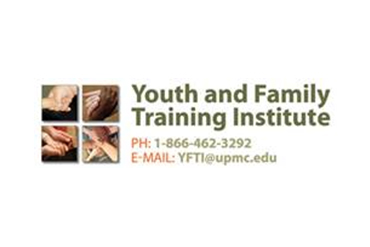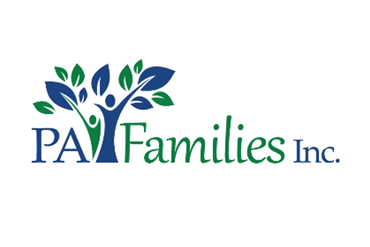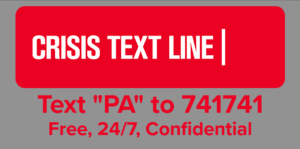Youth Resources
RESOURCES
This section hosts our Youth Resources. These resources cover a wide range such as self-advocacy, youth groups, workforce development, and more. All are free to use them.
Self-Advocacy
A Checklist for self-advocacy
This document is a checklist for self-advocacy. Learn more.
Young Adult Leadership Curriculum
This curriculum focuses on leadership, communication/leading a meeting, advocacy, public policy, and sharing your story. Learn more.
State of Utah Youth Council Policies and Procedures
This document outlines the policies and procedures of the Utah Youth Council. Learn more.
State of Utah Youth Advisory Board By-Laws
This document contains the by-laws for the Utah Youth Advisory Board. Learn more.
Youth Advisory Board Membership Application
Here is an example of an advisory board application for a youth organization. Learn more.
Forms
PA Care Partnership Stipend Form
An example of a stipend or consultation compensation form. Learn more.
PA Care Partnership Photo Release Form
An example of a photo release form. Learn more.
Employment
How to disclose your mental health to an employer
This document describes how to disclose to an employer that you have a mental health disability. Learn more.
Youth Advocate to Advocate for Youth
This guide is intended for young people who have chosen to utilize their lived experience as a mechanism to advocate for positive change. Learn more.
A Webinar Youth's guide to Understanding Trauma
A webinar that is designed to help understand youth trauma. Learn more.
A Hand Out to Understanding Youth Trauma
A handout designed to help understand youth trauma. Learn more.
Spanish LGBTQI Guide
This resource provides information for service providers, educators, partners and community members seeking to support the health of children and youth who identify as lesbian, gay, bisexual, transgender, exploring, intersex, and/or two spirits ( LGBTQI2 - S ) and their families. This guide will help to promote the full and affirmative inclusion of diverse LGBTQI2 - S youth and their families in all aspects of care systems. Learn more.
Restorative Justice and Practices
A guide on understanding the Basic Tenets of Restorative Justice are around: Harm and Relationships. Learn more.
Guide to Establishing Committees
The development of committees will allow your youth group to strengthen the internal and external aspects of the chapter. While your chapter may choose to establish committees that vary from the ones identified in this guide, these committee suggestions will help you get started. Learn more.
Youth Peer-to-Peer Support: A Review of the Literature
Peer-to-peer support has been an essential component for successful recovery in the adult mental health and substance abuse systems. The same support is urgently needed for youth in transition. However, peer-to-peer support for youth must be developmentally appropriate and specific to the unique needs of youth in transition. This literature review will look at peer support history, programs, outcome studies, and resources with an emphasis on youth. Learn more.
Medicaid Financing for Family and Youth Peer Support: A Scan of State Programs
This resource was developed by the Center for Health Care Strategies (CHCS) through its role as the coordinating entity for a five-year, three state Quality Demonstration Grant project funded by the Centers for Medicare & Medicaid Services under the Children’s Health Insurance Program Reauthorization (CHIPRA) Act of 2009. The multi-state grant is supporting lead-state Maryland, and partner states Georgia and Wyoming, in implementing or expanding a CME approach to improve clinical and functional outcomes, reduce costs, increase access to home- and community-based services, and increase resiliency for high utilizing Medicaid- and CHIP-enrolled children and youth with serious behavioral health challenges. Learn more.
Building the Foundation for Youth MOVEment of Peer Support
The third webinar in our young adult/peer support series will focus on the unique characteristics needed to develop and implement youth peer support services. Learn more.
Peer-2-Peer Part 1
A presentation that looks at programs that are under 18, over 18 and across systems. It discusses the movement of Youth Peer Support, while looking at some examples of peer to peer support in Education, Physical Health, Juvenile Justice, Foster Care, Mental Health and Homeless and Runaway Programs. Learn more.
Peer-2-Peer Part 2
This powerpoint looks at peer support from the standpoint of trauma, development, and recovery. Learn more.
Peer-2-Peer Part 3
Looks at the modules of Peer to Peer support and the findings from the scan. Learn more.
Provider Handbook for Psychiatric and Partial Hospitalization Services
A document that reviews mobile Mental Health Treatment and Peer Support Services. Learn more.
Peer Support Best and Promising Practices
A webinar that looks at backgrounds, findings, and recommendations of Peer Support Best and Promising Practices. Learn more.
Stages of Healthy Adolescent Development
A document that shows the stages of adolescent development. Learn more.
Now is the Time Technical Assistance Center
A document that explains what the NITT is about and the projects, like Project Aware and Health Transitions, for which they provide technical assistance. Learn more.
Peer Support Intervention Through Mobile Application
A Literature Review and Future Directions of mobile peer support. Learn more.
“Adult Ally” Webinar
A webinar that looks at the role parents and adults can play as allies to youth. Learn more.
PA CRISIS TEXT LINE







